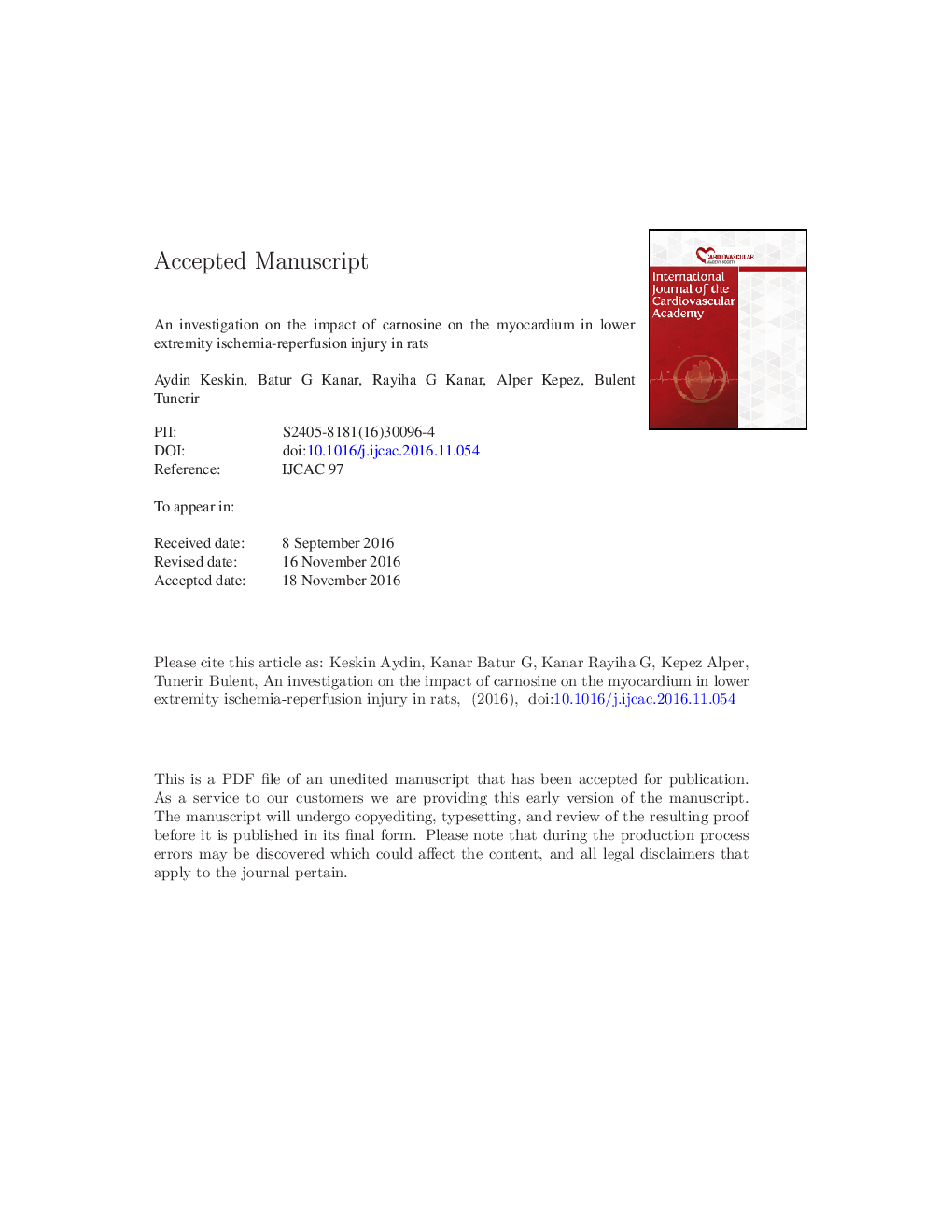| Article ID | Journal | Published Year | Pages | File Type |
|---|---|---|---|---|
| 8663093 | International Journal of the Cardiovascular Academy | 2017 | 17 Pages |
Abstract
The purpose of this study was to investigate the effect of carnosine (CAR) on ischemia-reperfusion (I-R) injury to the myocardium occurring after occlusion reperfusion of the infrarenal abdominal aorta (IAA) in rats. In this study, 30 Sprague-Dawley rats were randomly divided into three equal groups which are control, I-R, and I-RÂ +Â CAR groups. Laparotomy and IAA dissection were performed in all groups; occlusion was not performed in the control group. In the control group, the process was completed in 90Â min as in the other two groups. In the I-R and I-RÂ +Â CAR groups, the IAA was occluded by microvascular clamps; the first 30Â min represented the ischemia period, followed by declamping and a 60Â min reperfusion period. After the I-R period, rats were sacrificed. Heart specimens and blood samples were taken for histopathological and biochemical evaluation. Statistically significant alterations were observed in the control group in comparison with the other groups in the histopathological analyses. Although there was no significant difference between the I-R and I-RÂ +Â CAR groups regarding the histopathological findings, the I-RÂ +Â CAR group displayed more favorable histopathological findings compared with the I-R group. There were also significant alterations between the I-R and I-RÂ +Â CAR groups regarding aspartate aminotransferase (AST), creatine kinase (CK), and lactate dehydrogenase (LDH) enzyme levels. The I-RÂ +Â CAR group had significantly lower enzyme levels compared with the I-R group. In conclusion, carnosine seems to effectively prevent myocardial I-R injury in rats, as demonstrated by histopathological and biochemical evaluation.
Related Topics
Health Sciences
Medicine and Dentistry
Cardiology and Cardiovascular Medicine
Authors
Aydin Keskin, Batur G Kanar, Rayiha G Kanar, Alper Kepez, Bulent Tunerir,
